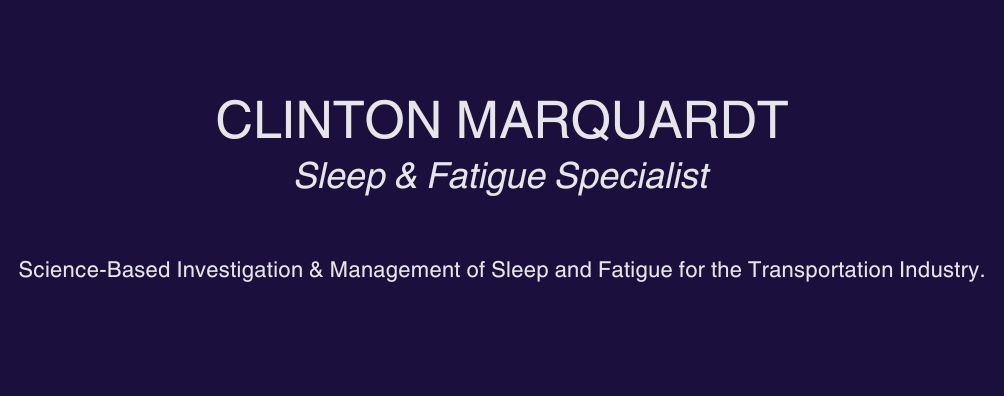
Fatigue is a major contributor to automobile accidents[1] and this may be because as many as 15.8% of drivers may be driving while being severely fatigued[2].
How do they get so fatigued? One pattern that we often see is that instead of prioritizing sleep on the night before a long drive, people prioritize the driving. Upwards of 76% of drivers on long journeys (over 600 kms) shorten their sleep[2] to get on the road early and the longer they drive the worse they drive[2].
Driving simulator studies show that fatigued drivers are like drunk drivers; they have a hard time maintaining correct speeds and they weave around on the road[3]. Fatigued people also react more slowly than well-rested people. This means that if you are fatigued, you may drive too fast and react too slowly to avoid a rear-end collision. It also means that you might drift into oncoming traffic and not be able to steer out of the way quickly enough to avoid a head on collision.
The lesson here is that if you are a driver and especially if you are planning a long drive during this year’s summer vacation, you need to get between 7 and 8 hours of good quality, uninterrupted, night time sleep before you jump behind the wheel.
References
[1] See for examples:
(A) Horne, J., & Reyner, L. (1995). Sleep related vehicle accidents. British Medical Journal, 4, 565-567.
(B) Philip, P., Vervialle, F., Le Breton, P., Tailliard, J., & Horne, J. (2001). Fatigue, alcohol and traffic accidents in France. British Medical Journal, 322, 829-830.
[2] Philip, P., Taillard, J., Klein, E., Sagaspe, P., Charles, A., Davies, W., Guilleminault, C., & Bioulac, B. (2003). Effect of fatigue on performance measured by a driving simulator in automobile drivers. Journal of Psychosomatic Research, 55, 197-200.
[3] See for examples:
(A) Arnedt, J.T., Wilde, G., Munt, P., & MacLean, A. (2001). How do prolonged wakefulness and alcohol compare in the decrements they produce on a simulated driving task? Accident Analysis and Prevention, 33, 327-344.
(B) Ware, J.C., Risser, M., Manser, T., & Karlson, K. (2006). Medical resident driving simulator performance following a night on call. Behavioral Sleep Medicine, 4(1), 1-12.


